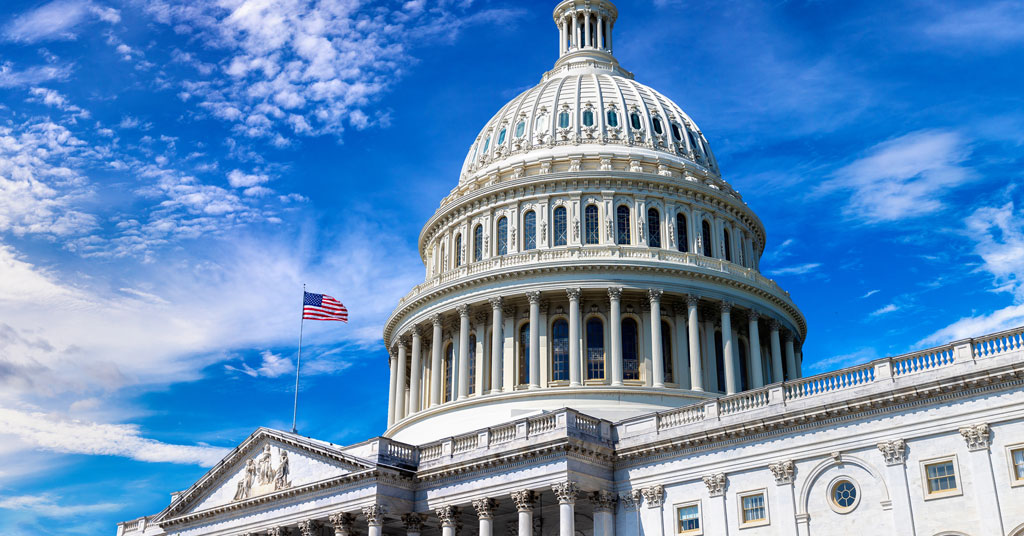Joint Employment, NLRB, & the FTC: The Final Frontier for the Franchise Model?

A lot has happened over the past few months—from the anticipated joint employer rule from the National Labor Relations Board (NLRB), to continuing action from the Federal Trade Commission (FTC) following its RFI earlier this year, to our own IFA Advocacy Summit in Washington, D.C. To be in franchising these days requires staying on top of the latest policy challenges and understanding their impacts on how we do business.
We soon expect the NLRB to issue its final rule on joint employment, returning us to the harmful, expanded joint employer standard first imposed in 2015. Under this new definition, joint ownership takes away the very autonomy that franchising seeks to provide. The 2015 change cost franchise businesses $33 billion per year in operational costs, led to 376,000 lost job opportunities, and resulted in a 93% increase in lawsuits over 2 years. Clearly, there are ample reasons why the IFA fought extensively against this standard then, which was eventually overturned by the previous administration.
Instead of franchisees being able to control their own workplace and employment decisions, this new rule threatens to turn them into middle managers, rather than owners of the businesses they have spent their careers building. That’s why it’s no surprise that 74% of franchisees expressed a high level of concern at the prospect of increased franchisor control, as our new research from Oxford Economics shows. This means they may face restrictions on how they engage with and support their local communities, how they interact with their employees, and how (and how long) they ultimately stay in business. In addition, with the increased threat of litigation, franchisors will have no choice but to become involved in the day-to-day decisions of their franchisees—or limit the support they offer to their franchisees for fear of being sued.
The IFA is committed to stopping this rule through any measure available, including a legal challenge and urging lawmakers to use their congressional authority to stop this action that will hurt businesses in their states and districts. As a first step, during the Advocacy Summit, we garnered bipartisan support to overturn the rule.
Yet to truly be successful, we need you.
One of the biggest problems we face as a sector is that when most people hear the word “franchise,” they think of big-name retailers and restaurants instead of brands looking to expand their reach by providing local business opportunities. They also don’t consider the underserved and under-represented—women, people of color, and veterans, to name a few—who benefit from franchising as a unique opportunity to become first-time business owners with an established brand. It is up to us to change that mentality.
As I’ve mentioned, we know all too well that the misguided policies in Washington stem from this confusion and misunderstanding of the franchise business model and from those who actively work against it. Evidence of these misconceptions became clear in the FTC’s RFI earlier this year.
In it, a series of questions were framed in a way that could only produce biased outcomes, instead of objective and constructive discourse. The simple difference between “How do franchisors exercise control over the wages and working conditions in franchised entities other than through the terms of franchise agreements?” rather than “Do franchisors exercise control over the wages… if so, how?” speaks volumes as to what answers they expected and were trying to achieve.
To that end, the IFA and our members worked tirelessly to counter this narrative and are proud of the thousands of positive experiences franchisors and franchisees included in the comments to the RFI. This is essential to preventing irreparable damage to the model as the FTC finalizes the Franchise Rule and considers any other potential regulation of the franchise model.
While these two issues were the focus of our day on Capitol Hill, the IFA has also successfully prevented Julie Su from serving as U.S. Secretary of Labor, and we will continue fighting to ensure she does not overstep her authority in her role as acting secretary.
We’re also continuing our efforts in California to mitigate the damage from the state’s targeting of quick-service restaurants, ensuring that franchisees, their employees, and their customers are all protected from the harm these misguided bills (and similar copycat bills following suit in other states) could bring.
The symbiotic relationship between franchisors and franchisees has become a cornerstone of modern commerce. Yet, amidst the promise and potential, it is up to us to safeguard the future of franchising.
It was so powerful to see hundreds of business owners and franchise leaders at the IFA Advocacy Summit hitting the halls of Congress to make sure their stories are told and our business model is understood. It was a striking reminder of how many voices it takes to inform and, therefore, protect, enhance, and promote the franchise business model.
When we work together to protect franchising, we preserve our own businesses and the dreams and aspirations of countless individuals who dare to carve their path in the business world—and of the millions they serve and benefit in the process.
Matthew Haller is president and CEO of the International Franchise Association.
Share this Feature
Recommended Reading:
FRANCHISE TOPICS
- Multi-Unit Franchising
- Get Started in Franchising
- Franchise Growth
- Franchise Operations
- Open New Units
- Franchise Leadership
- Franchise Marketing
- Technology
- Franchise Law
- Franchise Awards
- Franchise Rankings
- Franchise Trends
- Franchise Development
- Featured Franchise Stories
FEATURED IN

Multi-Unit Franchisee Magazine: Issue 4, 2023

$175,000
$500,000





 The multi-unit franchise opportunities listed above are not related to or endorsed by Multi-Unit Franchisee or Franchise Update Media Group. We are not engaged in, supporting, or endorsing any specific franchise, business opportunity, company or individual. No statement in this site is to be construed as a recommendation. We encourage prospective franchise buyers to perform extensive due diligence when considering a franchise opportunity.
The multi-unit franchise opportunities listed above are not related to or endorsed by Multi-Unit Franchisee or Franchise Update Media Group. We are not engaged in, supporting, or endorsing any specific franchise, business opportunity, company or individual. No statement in this site is to be construed as a recommendation. We encourage prospective franchise buyers to perform extensive due diligence when considering a franchise opportunity.